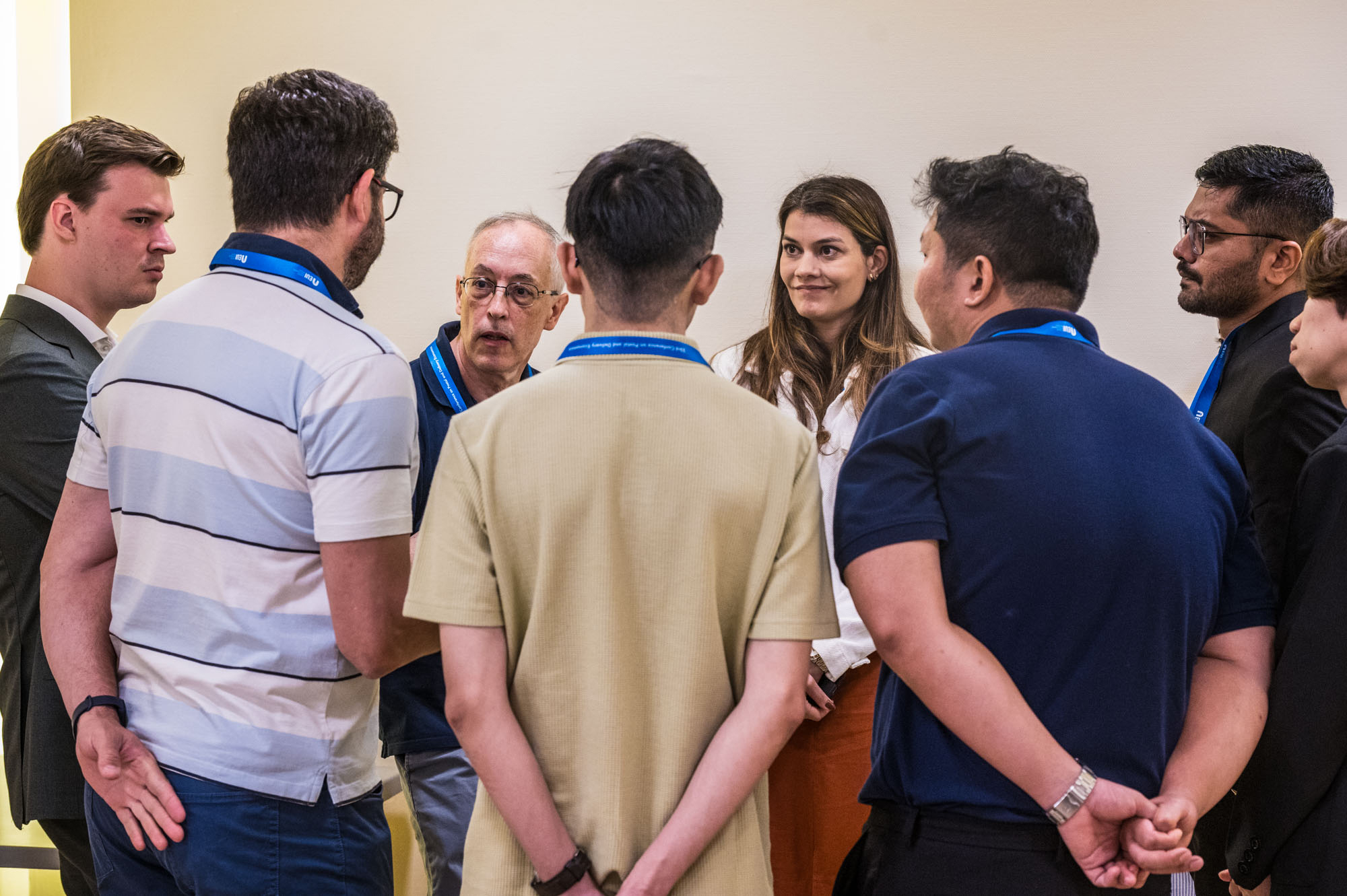The third UPU Innovation Challenge took place from 21 to 23 May in Limassol, Cyprus, bringing together innovators, policymakers and postal experts from around the world. Held alongside the 33rd Conference on Postal and Delivery Economics, the event served as a laboratory for sharing fresh thinking on how postal services can adapt to a digital and sustainable future. Participants tackled three core themes powered by data integration and artificial intelligence: digital identity, circular economy logistics and the future of the universal service obligation (USO).
Collaboration at the core of innovationDesigned as an intensive and solution-oriented event, the Innovation Challenge invited participants, under the theme “Unlocking the power of hyper-collaboration”, to co-develop practical ideas based on real-world scenarios. With support from the European University Institute’s Centre for a Digital Society (EUI-CDS), La Poste Groupe (France) and Amazon Web Services, the initiative gave teams access to postal data, technical mentoring and global insights.
This year, the UPU also welcomed 14 fellows from around the world, whose regional knowledge and diverse expertise enriched the discussions with valuable perspectives. Over three days, interdisciplinary teams explored how new technology, data and public infrastructure could be combined to meet changing global needs.
Reimagining the universal service obligation
The first challenge focused on modernizing the USO, which guarantees that all citizens have access to postal services. With traditional models under strain on account of falling mail volumes, rising operational costs and shifting expectations, participants explored how artificial intelligence and predictive analytics could help reshape the USO to remain relevant and sustainable in the digital age.
By analyzing factors such as geography, population density and service demand, the team proposed adaptive, data-informed frameworks that could accommodate shifting needs. These solutions highlighted the urgency of updating longstanding policies so as to remain relevant in a digitally connected world.
The team concluded that an interactive, user-friendly data tool could help policymakers and regulators explore future scenarios for the USO and guide its revitalization. Ultimately, the key to the tool’s success for effective implementation lies in the quality of data and the active engagement of stakeholders.
Technology and consumer-oriented solutions for electronics circularity
The second challenge addressed the growing need for sustainable reverse logistics, as a key enabler of circular value chains. The team looked at how postal networks can support the collection and reverse flow of used or derelict electronics, with a view to extending their lifespan or recovering material value such as secondary raw materials.
The participants proposed a multi-dimensional approach for Posts to support device returns, reuse and recycling, mobilizing both their physical and their digital and financial services infrastructure. Specifically, they demonstrated a proof-of-concept digital user platform supported by interoperable databases that aggregate and share product and material data with electronics producers and regulators.
Among the participants were Ibukun Faluyi, who leads E-waste Producer Responsibility Organization Nigeria (EPRON), and Deepali Sinha Khetriwal, co-founder of E[co]work International, a non-profit supporting local e-waste microentrepreneurs. They demonstrated how the solution could apply in Nigerian and Indian contexts, emphasizing features such as on-demand service booking, track and trace, and product data collection to strengthen coordination, especially with local communities and informal workers.
Rethinking digital identity with postal infrastructure
The third challenge explored how postal networks could help shape the future of digital identity. Participants looked at the development of secure digital wallets for identity verification, credential storage and public service access. These solutions would build on the reach and trust of postal networks while supporting cross-border interoperability.
Taking part in this challenge as a team member, Helena Cimber, Product Director at e-Boks, which is a member of the UPU Consultative Committee, shared her views on how the postal sector’s trusted role can be leveraged for digital services in an evolving ecosystem.
“We’re exploring how postal operators could play a key role in the digital identity ecosystem. They’re already verifying identities every day over the counter,” she explained.
“So, what if that process could be digital, secure and privacy-enhancing? What’s missing in many national initiatives is a shared standard, and that’s where the Post could have a unique role,” added Cimber.
From ideation to implementation
This year, the event also explored the proposed architecture of the UPU’s Unified Data Platform (UDP). The UDP is envisioned as a single, intuitive environment that consolidates and validates data from multiple sources, leveraging advanced analytics and agent-based AI to transform postal operations and policymaking.
This third edition of the Innovation Challenge showed that meaningful transformation is both necessary and achievable. By bringing together postal operators, technology experts, regulators and researchers, it bridged theory and practice, showcasing advanced data- and AI-driven systems as future knowledge engines of sustainable postal development. Building on this momentum, the UPU will focus on integrating the three challenge solutions into the UDP, translating them into concrete, high-impact innovations for postal services worldwide. With the right tools, talent and shared determination, the postal network can remain a cornerstone of public infrastructure in an increasingly connected world.
